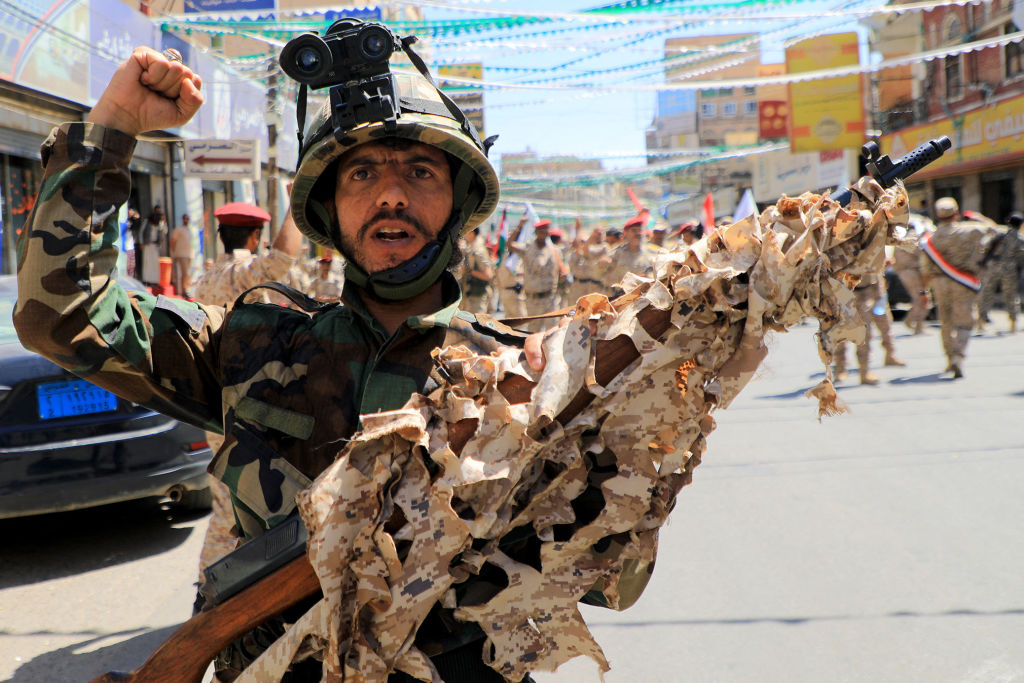In a significant escalation of the Israel-Hamas conflict, Yemen’s Houthi rebels claimed responsibility for missile and drone attacks targeting Israel for the first time on Tuesday. This development brings Iran, the main sponsor of the Houthis, closer to the ongoing war in Gaza and raises the risk of a regional conflict erupting. The Houthis were suspected of an attack earlier this month on Israel by launching missiles and drones over the Red Sea. The US Navy intercepted the projectiles. However, on Tuesday, Israel reported that its fighter jets and Arrow missile defense system successfully shot down two waves of incoming fire as they approached the Red Sea port of Eilat. The Houthis claimed three attacks on Israel in a later statement, but did not specify the timeframe or whether Tuesday’s salvos represented one or two separate attacks.
In addition to the attack intercepted by the US, there was a mysterious explosion last Thursday in the Egyptian resort town of Taba, near the Israeli border, which injured six people. The Houthis’ military spokesman, Brig. Gen. Yahya Saree, said in a televised statement that their armed forces launched a large batch of ballistic missiles and drones at Israeli targets to support their “oppressed brothers in Palestine.” Israel confirmed that all aerial threats were intercepted outside of its territory and that there were no infiltrations.
The Houthis did not reveal the specific weapons used in the attack, but the use of the Arrow missile defense system suggests that a ballistic missile may have been launched. The Houthis have a variant of the Burkan ballistic missile, which is modeled after an Iranian missile and believed to have a range of over 1,000 kilometers (620 miles), capable of reaching near Eilat. The timing of these attacks coincided with the presence of the USS Bataan strike group and other US vessels in the Red Sea.
The Pentagon’s press secretary, Air Force Brig. Gen. Pat Ryder, expressed concern over the Houthi fire targeting Israel and the potential for a broader regional conflict. Saudi Arabia, which has been engaged in a yearslong war against the Houthis, did not respond to questions. The kingdom reportedly suffered casualties in recent fighting with the rebels. Iran’s involvement in the conflict has been further highlighted, as it has long supported both the Houthis and Hamas, as well as Hezbollah, which has engaged in cross-border attacks with Israel. The risk of overwhelming Israel’s air defenses is heightened if Hezbollah, Hamas, and others launch massive missile barrages.
Iran has denied arming the Houthis, but independent experts, Western nations, and United Nations experts have traced seized components back to Iran. The UN has imposed an arms embargo on the Houthis since 2014. There has been at least one attack in the past, claimed by the Houthis but blamed on Iran, that successfully penetrated Saudi Arabia and targeted its oil industry in Abqaiq. The Abqaiq attack temporarily halved the kingdom’s oil production and caused a spike in global energy prices. The Iranian mission to the UN warned that allied militias like the Houthis could expand their operations against Israel and urged the US administration to halt Israeli transgressions to avoid further escalation.
Source: Associated Press.
Denial of responsibility! Vigour Times is an automatic aggregator of Global media. In each content, the hyperlink to the primary source is specified. All trademarks belong to their rightful owners, and all materials to their authors. For any complaint, please reach us at – [email protected]. We will take necessary action within 24 hours.


